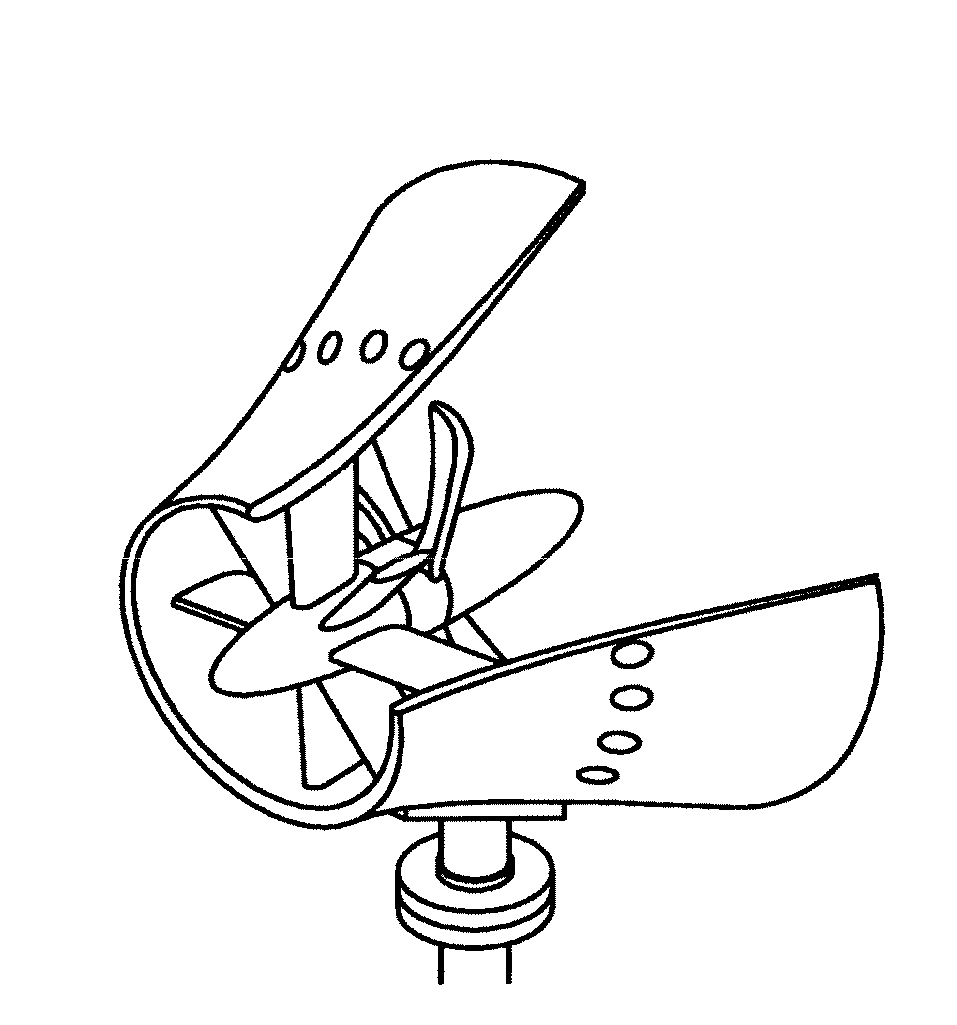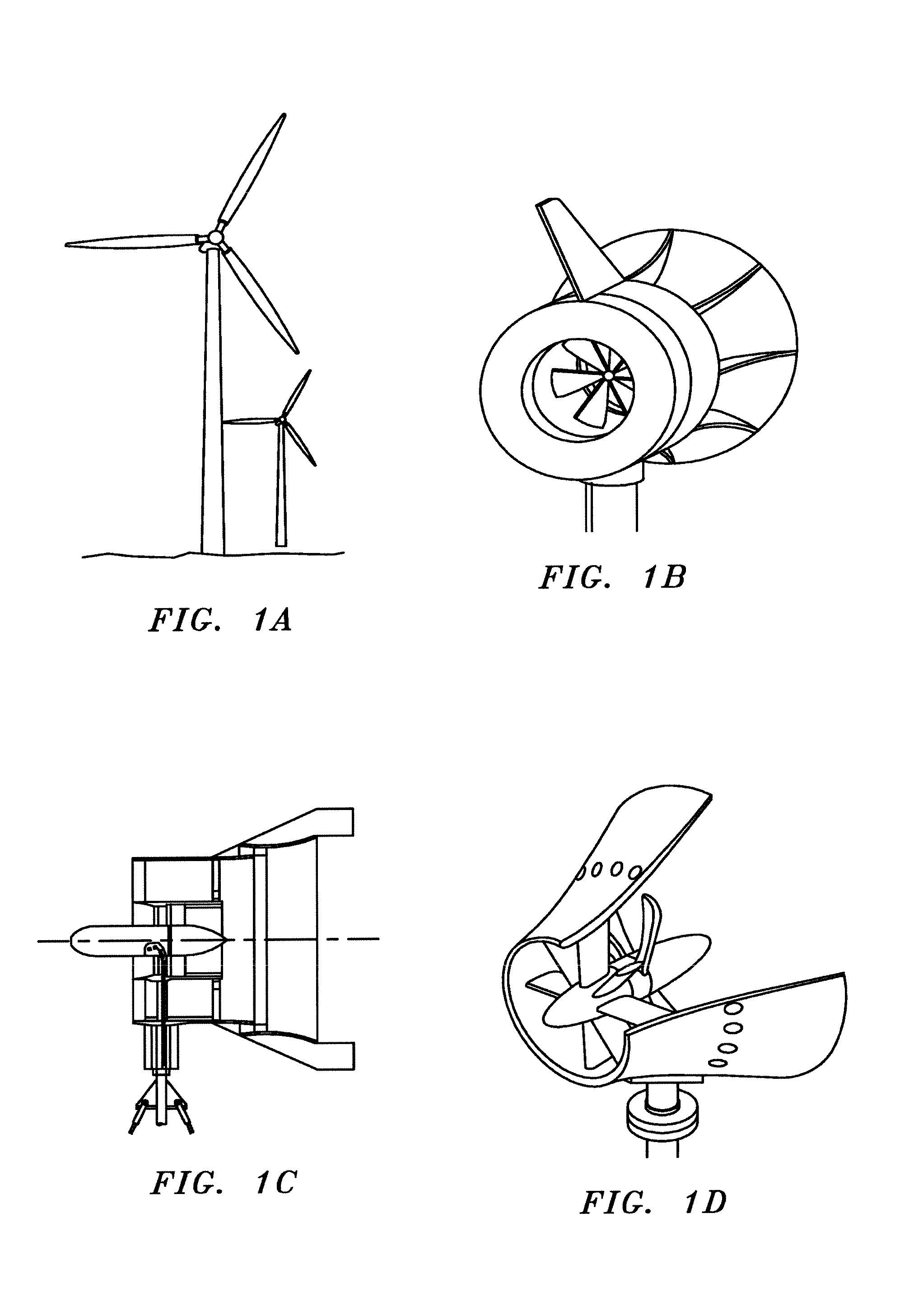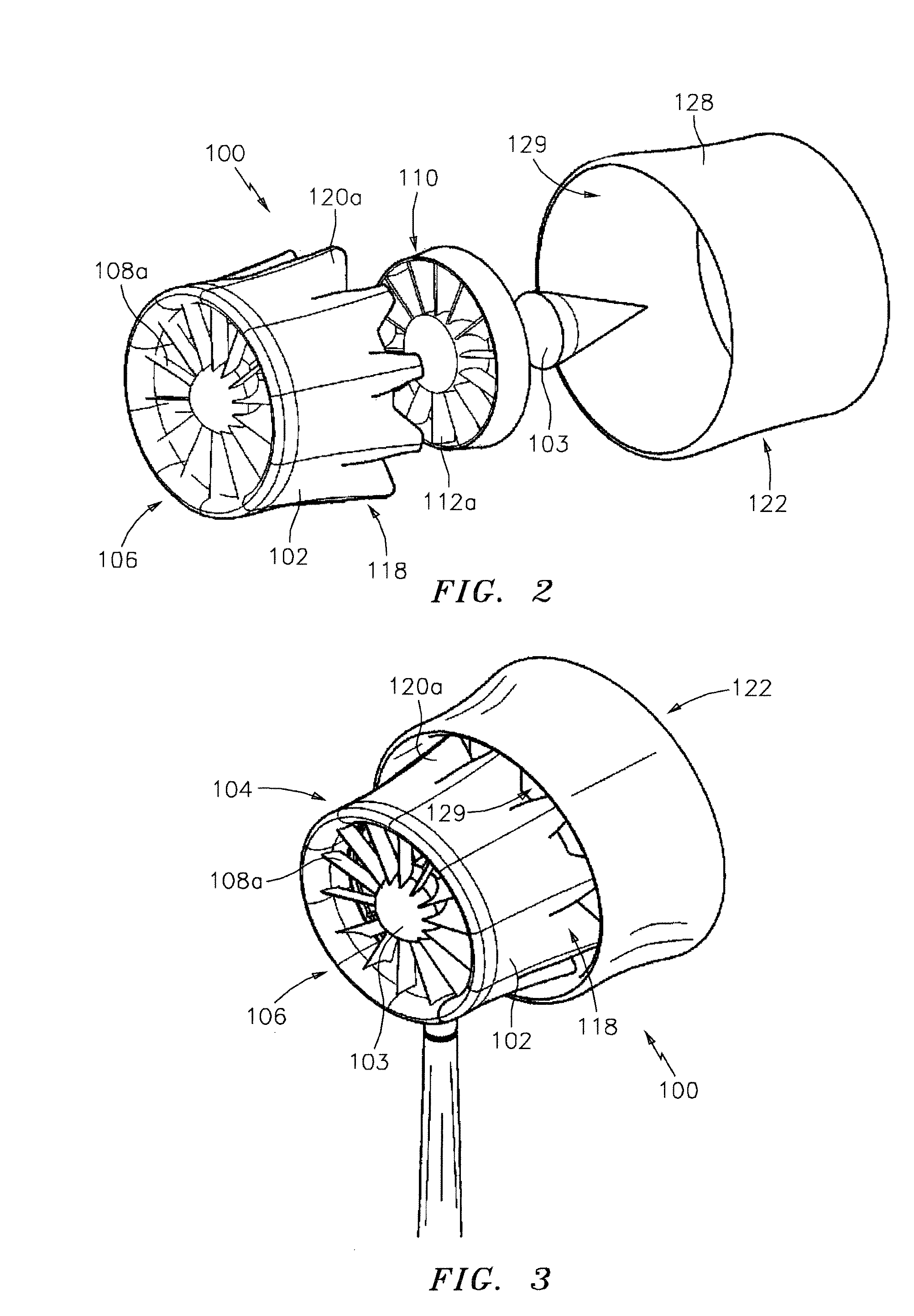Wind turbine with mixers and ejectors
a wind turbine and mixer technology, applied in the field of wind turbine accessories, can solve the problems of rotor blade breakage, higher power extraction levels, and rotor blades being weakened, so as to improve the sustainable efficiency of wind turbines, reduce noise, and increase operational efficiency
- Summary
- Abstract
- Description
- Claims
- Application Information
AI Technical Summary
Benefits of technology
Problems solved by technology
Method used
Image
Examples
Embodiment Construction
[0051] Referring to the drawings in detail, FIGS. 2-25 show alternate embodiments of Applicants' apparatus, “Wind Turbines with Mixers and Ejectors” (“MEWT”).
[0052] In the preferred “apparatus” embodiment (see FIGS. 2, 3, 4 and 5), the MEWT 100 is an axial flow wind turbine comprising: [0053] a. an aerodynamically contoured turbine shroud 102; [0054] b. an aerodynamically contoured center body 103 within and attached to the turbine shroud 102; [0055] c. a turbine stage 104, surrounding the center body 103, comprising a stator ring 106 of stator vanes (e.g., 108a) and an impeller or rotor 110 having impeller or rotor blades (e.g., 112a) downstream and “in-line” with the stator vanes (i.e., leading edges of the impeller blades are substantially aligned with trailing edges of the stator vanes), in which: [0056] i. the stator vanes (e.g., 108a) are mounted on the center body 103; and [0057] ii. the impeller blades (e.g., 112a) are attached and held together by inner and outer rings or ...
PUM
 Login to View More
Login to View More Abstract
Description
Claims
Application Information
 Login to View More
Login to View More - R&D
- Intellectual Property
- Life Sciences
- Materials
- Tech Scout
- Unparalleled Data Quality
- Higher Quality Content
- 60% Fewer Hallucinations
Browse by: Latest US Patents, China's latest patents, Technical Efficacy Thesaurus, Application Domain, Technology Topic, Popular Technical Reports.
© 2025 PatSnap. All rights reserved.Legal|Privacy policy|Modern Slavery Act Transparency Statement|Sitemap|About US| Contact US: help@patsnap.com



